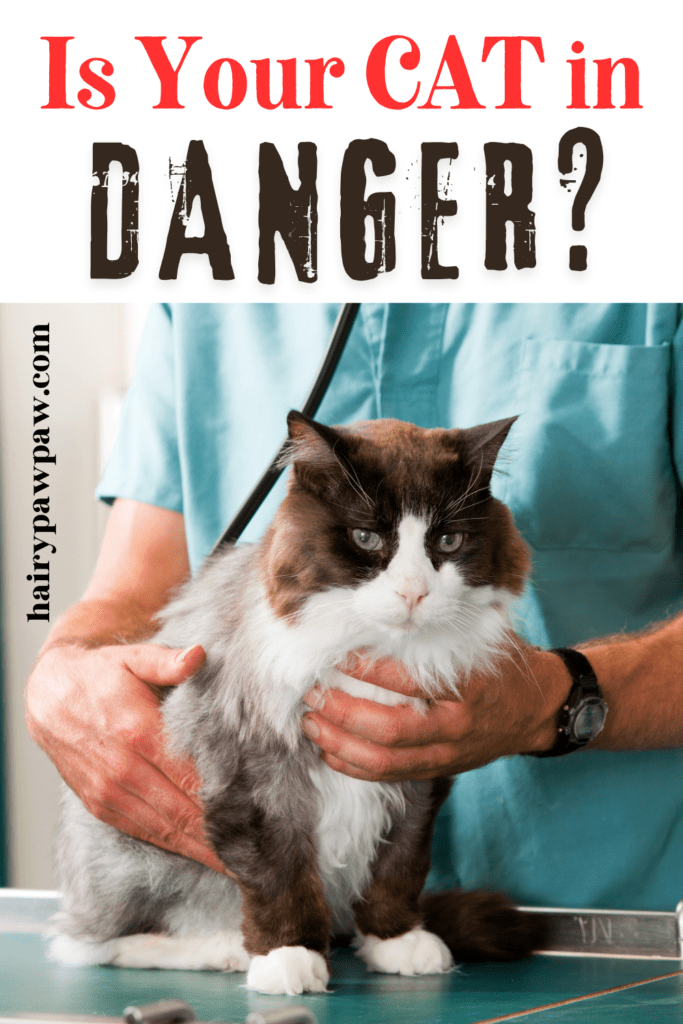This “Sphynx Cats and Common Health Problems You Need to Know” post may contain affiliate links, which means I’ll receive a commission if you purchase through my link, at NO EXTRA COST TO YOU
Sphynx Cats and Common Health Problems You Need to Know
Sphynx cats are known for their striking appearance, featuring hairless bodies and large, bat-like ears. Their distinct look sets them apart from other breeds, but they require special care, particularly when it comes to health. While Sphynx cats are often considered hypoallergenic due to their lack of fur, they are not immune to health issues. As a responsible cat owner, it’s essential to understand the common health problems that affect Sphynx cats and how to address them effectively.

In this guide, we’ll delve into the most frequent health concerns faced by Sphynx cats, how to recognize symptoms, and the best ways to prevent or manage these issues. This information will help ensure your Sphynx cat stays happy, healthy, and well-cared-for.
1. Skin Conditions: The Most Common Issue
One of the most notable aspects of the Sphynx cat is its lack of a fur coat. While this might seem like a benefit, it actually opens up a whole range of skin-related health issues. The absence of fur means that their skin is more exposed to external factors, and they may suffer from conditions that other cats don’t face.
a) Oil Buildup and Acne
Since Sphynx cats don’t have fur to absorb their skin’s natural oils, the oils can build up on their skin, leading to clogged pores. This buildup can cause blackheads and acne, especially on their face, back, and ears.
Solution: Regular bathing is essential to remove excess oils and keep the skin clean. Use a gentle, cat-safe shampoo designed for hairless breeds, and wash your Sphynx once every 1-2 weeks. Additionally, monitor their skin for signs of acne and consult your vet if the condition worsens.
b) Dry Skin and Sunburn
Sphynx cats are prone to dry, flaky skin because they lack the natural protection that fur provides. Moreover, their exposed skin can burn easily under direct sunlight.
Solution: Ensure your cat stays hydrated by offering fresh water at all times. Avoid prolonged sun exposure, especially during peak hours. If your cat enjoys lounging outside, consider using a pet-safe sunscreen recommended by your vet.

Keeping Your Cat Hydrated: Tips for Better Health
Ensuring that your cat stays hydrated plays a crucial role in supporting their overall health. Just like humans, cats rely on water for nearly every bodily function, including digestion, circulation, and temperature regulation. Dehydration can lead to serious health problems, including kidney disease, urinary tract infections, and digestive issues.
2. Heart Disease: Hypertrophic Cardiomyopathy
Sphynx cats, like many purebred cats, are prone to certain genetic conditions. One of the most common heart diseases in Sphynx cats is hypertrophic cardiomyopathy (HCM), a condition where the heart muscle thickens, making it harder for the heart to pump blood.
Solution: Regular vet checkups, including heart exams, can help detect early signs of HCM. If diagnosed, treatment options such as medications may be prescribed to manage the condition. Monitoring your cat’s behavior for signs of lethargy or difficulty breathing is key in early detection.
3. Respiratory Issues: Breathing Problems in Sphynx Cats
Due to their prominent facial structure and large ears, Sphynx cats can experience breathing problems. Their flat faces, a feature common in brachycephalic breeds, may obstruct airways, leading to difficulties in breathing.
Solution: Keep your Sphynx in a well-ventilated space to avoid respiratory stress. Be mindful of their breathing during physical exertion or hot weather. If you notice labored breathing, sneezing, or coughing, consult your vet to rule out respiratory infections or other underlying conditions.
4. Hypothermia: Keeping Your Sphynx Warm
Sphynx cats have no fur to keep them warm, making them highly susceptible to temperature changes. Hypothermia can occur if they are exposed to cold environments, as they lack the insulation provided by a fur coat.
Solution: Always keep your Sphynx cat indoors, especially during colder months. Provide them with cozy beds, blankets, or heating pads to help regulate their body temperature. Some Sphynx owners invest in pet clothing, like sweaters, to ensure their cat stays warm during colder weather.

The Charm of Cardboard Cat Houses: A Cozy Retreat for Your Feline Friend
Cats love cozy hideaways, and cardboard cat houses offer the perfect blend of comfort and fun. These simple yet delightful structures provide a safe space for your feline friend to play, sleep, and explore. In this blog, we’ll explore the benefits of cardboard cat houses, why cats love them, and some top picks to consider for your pet.
5. Ear Infections: Cleaning and Maintenance
Sphynx cats are known for their large, expressive ears, but their ear structure requires special attention. These cats are prone to ear infections due to the excess wax that can accumulate in their ears. Because of their large ears, dirt and debris can also easily build up, leading to infections if not cleaned properly.
Solution: Regular ear cleaning is essential to keep your Sphynx’s ears free from wax and debris. Use a vet-approved ear cleaner and a soft cotton ball to gently clean their ears once a week. If you notice signs of ear infection, such as a strong odor, redness, or discharge, contact your vet for treatment.
6. Dental Problems: Gum Disease and Tooth Decay
Like many cats, Sphynx cats are susceptible to dental issues such as gum disease and tooth decay. These problems can develop if proper oral hygiene isn’t maintained.
Solution: Brush your Sphynx’s teeth regularly using a cat-safe toothbrush and toothpaste. Providing dental treats or toys designed to promote oral health can also help keep their teeth clean. Regular vet visits that include dental checkups are important to detect early signs of gum disease or decay.
7. Gastrointestinal Issues: Digestive Sensitivity
Some Sphynx cats experience gastrointestinal issues such as diarrhea, vomiting, and food allergies. Their sensitive digestive systems may react poorly to certain ingredients in commercial cat food.
Solution: Feed your Sphynx a balanced, high-quality diet with easily digestible ingredients. If you notice gastrointestinal problems, consult your vet for advice on food allergies or sensitivities. Special dietary options, such as hypoallergenic cat food, may be necessary to improve their digestion.

Cat Feeding Guide: Controlling Protein for Better Health
Ensuring your cat receives the right amount of protein greatly impacts their overall health, weight, and energy levels. Since cats are obligate carnivores, their bodies thrive on protein from animal sources. However, finding the right balance in protein intake matters because both excess and deficiency can lead to health issues.
8. Urinary Tract Issues: Prevention and Management
Urinary tract infections (UTIs) and bladder stones can affect Sphynx cats, leading to discomfort or more severe health problems. Since Sphynx cats have a tendency to be more sensitive to urinary issues, it’s important to monitor their health closely.
Solution: Ensure your Sphynx cat drinks enough water to prevent urinary problems. Providing a clean litter box and maintaining good hygiene can also help. If you notice any signs of difficulty urinating, blood in the urine, or frequent urination, seek veterinary care immediately.
9. Genetic Issues: Feline Hypertrophic Cardiomyopathy (HCM)
Sphynx cats are at risk of inheriting certain genetic conditions, particularly feline hypertrophic cardiomyopathy (HCM), a heart disease that affects many purebred breeds. Regular vet checkups can help diagnose this condition early.
Solution: Regular heart check-ups and echocardiograms can detect HCM early, allowing for appropriate treatment and lifestyle adjustments to prevent complications.
10. Spinal Problems: Spondylosis Deformans
Sphynx cats are sometimes affected by spondylosis deformans, a condition that causes abnormal bone growth along the spine, potentially leading to pain and stiffness.
Solution: Regular veterinary checkups are essential for detecting spinal issues early. If your cat shows signs of discomfort, such as limping or difficulty jumping, consult your vet for a proper diagnosis and treatment plan.
Conclusion: Keeping Your Sphynx Cat Healthy
Sphynx cats are beautiful, unique creatures that require special care to maintain their health and well-being. While they may face certain health challenges due to their lack of fur and genetic predispositions, proper care and regular vet visits can help manage most health concerns. By staying informed about the potential issues, you can ensure that your Sphynx remains a happy, healthy companion for many years to come.
If you notice any unusual symptoms or changes in behavior, always consult with your veterinarian to address potential health problems early. With the right care, your Sphynx cat can lead a long, comfortable life free of major health issues.

Signs Your Pet Needs to See a Vet Immediately
As a pet owner, it’s essential to be attuned to your pet’s behavior and physical condition. While some symptoms may seem minor, they could be indicators of serious underlying health issues. Recognizing the signs that your pet needs immediate veterinary attention can make a significant difference in their health and well-being.



